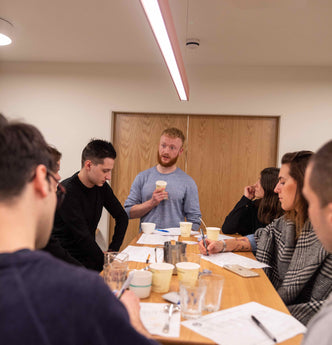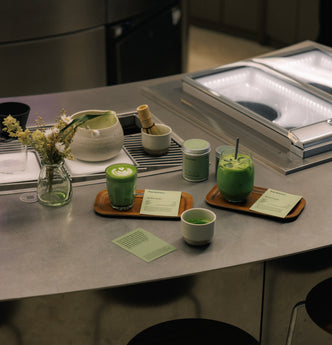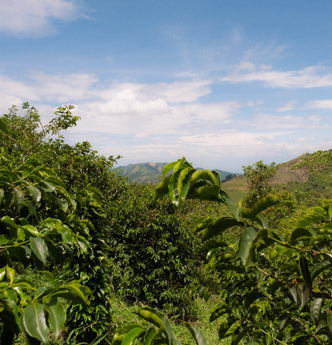Spotlight.
Becoming a Q-Grader
April 05, 2020
Written by Watch House



Ryan Garrick | Head of Coffee
In November last year, I became a Licensed Q-Arabica Grader, but what does that even mean?
What is a Q-Grader?
A Q-Grader is an individual who is certified to determine the grade of a coffee on the Q-Scale developed by the Coffee Quality Institute. There are different classifications (Arabica/Robusta) and these individuals are responsible for working at origin or in their labs to provide objective feedback on the quality of coffee.
The Scale
The scale runs from 60-99 and is determined by assessing the coffee across the factors of Aroma, acidity, flavor, aftertaste, body, balance, overall, uniformity, sweetness and clean cup.
As a specialty coffee roaster, we only consider cups which score 80 points or higher on this scale (aka excellent coffees).
How we assess coffee (Q-Standards)
There’s a lot of work to be done just in selecting a coffee. For every coffee we consider, we will receive 100g of green coffee. We will then assess this sample physically, analyzing colour, moisture, smell and analysis of any defects such as sour/black or otherwise compromised beans. After this we then roast the sample in 2 batches on our IKAWA sample roaster (home version available…), assess the physically roasted beans for any defects known as “quakers” (very light beans that will taste like popcorn and negatively impact flavor intensity of the final cup as well as impart negative characteristics. For specialty we can have no more than 3 in a 100g sample).
We then allow the sample to rest overnight and will go through the taste assessment called ‘cupping’. For any coffee, 5 cups are required to be brewed on the table to test for uniformity/clean cup issues (defects such as mold).
All this data is logged into our lab software ‘Cropster’ and allows us to then decide whether to accept or reject a given sample. (all in all, any sample is an hour of work minimum and we may taste 50 just to find one for our current offering).
Should we accept a sample, we will do another full analysis when the first bags of the coffee arrive to compare against our data and continue to do so regularly to ensure the beans are holding up well in storage.
How do you become a Q-Grader?
The Q-Grader course is a rigorous set of 22 exams. A significant amount of these are sensory exams with a plethora of acids and items to smell/taste as well as some theoretical and most importantly Cupping exams.
The course has a first-time pass rate of around 10% and you may only attend the course a further 2 times to try and pass all the exams. The course must be designed as such as at the end of this you are in a position to determine whether a farmer's coffee gets access to the highly paid specialty market or the poorly paid commodity market. A decision not to be made lightly.
The course isn’t just about having the required sensory skill though, a Q-Grader must show an ability to calibrate and work with a team. No one person is responsible for the score of a coffee so in the course, graders will illustrate through the carryover from calibration to exam days how well they can set aside their own subjective feelings towards a coffee and allow themselves to agree with the group they are assessing with.
Why is the Q-Program so important to Specialty Coffee?
The Q-Program is crucial to us because it gives us a legitimate way to objectively identify coffee that is good from coffee that is not. It has created a universal system which can be communicated all the way across the supply chain. It allows farmers to get consistent information they need to produce better coffee every year.
We know that the final step in the coffee's journey is a subjective question of do you like or dislike this flavor? But it is crucial that the people whose livelihoods depend on this crop are not beholden to subjective assessment for that would remove any and all power from those most vulnerable in our chain.
What else did I get from the course?
Appreciation, as someone who has gone through the coffee career path from barista it has been easy to be quite critical of coffee. As you get the opportunity to work with the really top-level competition coffees it’s easy to have a jaded view of what “good” is.
The Q made me appreciate just how special all of these coffees are, even those that don’t quite make specialty grade, it taught me to look for the positive attributes of a coffee, to reward it and change my critical outlook. It taught me that it’s not always about finding the highest scoring coffee, it’s about the potential in all of these coffees and how we can work as a community to improve the coffees and the lives of those who depend on it.


